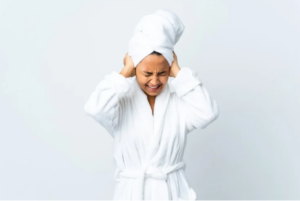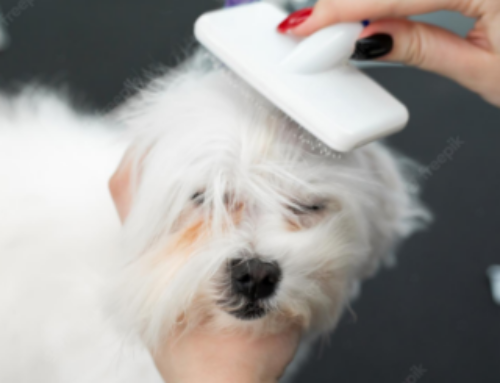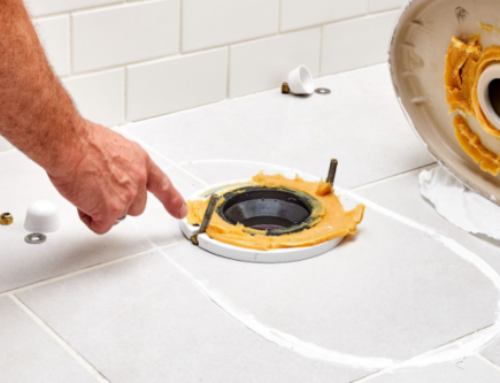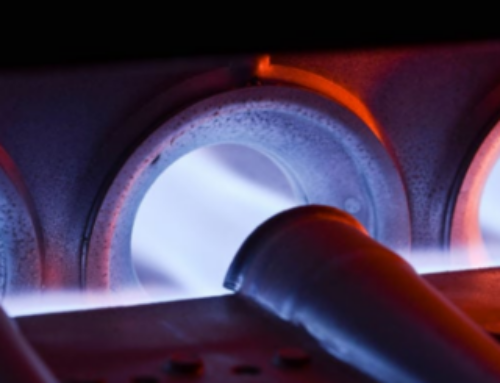What’s Causing Your Shower To Squeal?
When your shower squeals, shouts, or whistles when you take a shower, it’s safe to say your plumbing isn’t working properly. Here are some of the most common reasons causing your shower to squeal or noises and how to deal with them before considering earplugs.
Most often, your showerhead and its connecting pipes become clogged with limescale or minerals, causing high-pitched squeals. The water pressure in your home attempts to push through this limescale buildup, resulting in whistling. If you have not cleaned your showerhead in a while, you may hear these noises.
What is the best way to clean a showerhead and pipes? The use of specific tools and products can make this task easier and more efficient. Before the issue gets worse, clean your showerhead and pipes to eliminate these annoying sounds.
What’s Causing Your Shower To Squeal?
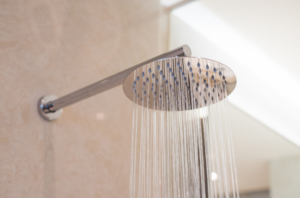
Showers can make a high-pitched sound for a variety of reasons. Investigating the issue may help you determine the problem in some cases. In other cases, a plumbing professional might be needed to figure out what’s wrong.
These are some of the most common causes of shower whistles and squeals:
-
Limescale Buildup
Showers emit an annoying squeal due to limescale, as we mentioned earlier. Limescale is a constant visitor to bathrooms whenever water is heated or left standing. Limescale builds up in your pipes and showerhead over time, causing a squealing noise when it blocks water flow.
-
Mineral or Sediment
Water systems can be clogged up with minerals and sediment as well, resulting in squealing. If you have hard water or a natural water source, minerals can enter your water naturally. Groundwater often carries sediment. Clean your showerhead to remove mineral or sediment buildup, just as you would limescale buildup.
-
Broken Or Clogged Showerhead
The showerhead can squeal loudly when sediment clogs the small holes. Make sure the showerhead is cleaned thoroughly and then replaced to determine whether the sound has been resolved. Otherwise, there may be a problem with the showerhead. It is fortunately an easy and quick process to replace a showerhead.
-
Clogged Showerhead Pipes
There is also the possibility of a clogged pipe if the problem isn’t caused by the showerhead. If you are having difficulties cleaning mineral deposits from the pipe leading to the showerhead, remove the showerhead and use a snake or another narrow, flexible tool to clean the pipe.
-
Faulty Shower Cartridge
There are some cases when a shower cartridge is broken or damaged. Considering the cartridge is hidden inside the faucet assembly, this is a more difficult fix. Gibber Services can assist you with this repair if you need it done right.
-
Worn Or Broken Diverter Valve
Basically, the diverter valve is the knob that allows the water to stop flowing from the tub faucet and instead flow into the shower pipe. It is possible for this valve to wear out over time, leading to that annoying squealing sound that can sometimes be heard. Fortunately, testing is simple. Make sure the water is on and toggle the diverter. You need to replace the diverter if the sound changes when the diverter is activated.
-
Water Pressure Too High
The problem often goes hand in hand with other issues, like clogged pipes, but it can also indicate a bigger problem in your home’s plumbing. Getting a long-lasting solution for your shower hassle is as easy as calling an experienced local plumber.
How Dangerous Is a Squealing Shower?
The sound of a squealing shower doesn’t make you feel good, and it can even cause a bit of anxiety. Consequently, it makes sense to wonder if squealing showers are dangerous. Thus, it can be. You could be getting debris in your drinking water if the squealing is caused by rusting or corroding pipes.
This type of plumbing problem usually does not resolve on its own. In the event that the pipes become clogged due to debris or clogs, they will only become clogged more over time. Those with faulty valves or cartridges will degrade more quickly. As a result, your plumbing will be damaged more and will require more expensive repairs in the future.
How To Fix a Squealing Shower?

-
Clean Your Showerhead
- Remove Your Showerhead – Remove your showerhead first. The water supply does not need to be shut off, but the shower should not be running. You can remove the showerhead from the shower arm by turning it clockwise with pliers or an adjustable wrench. You may put a rag over the showerhead if it is giving you problems and give it your best shot without fear of damaging it.
- Clean Your Showerhead – The cleaning process can begin once your showerhead has been removed. You can remove some of the buildups by penetrating all holes in the showerhead with a toothpick. Once the showerhead is thoroughly cleaned, brush and then rinse it with water to remove any loose debris. Lastly, place your showerhead in a bowl of vinegar and soak it for an hour.
- Replace and Check Your Showerhead – Once your showerhead has been soaked in vinegar, rinse it thoroughly with water. Before reconnecting the showerhead, clean the pipe opening that connects to the showerhead with a wet rag and use vinegar to remove any buildup. As soon as you have reattached your showerhead, run the shower to check if the squealing has stopped. It may be something else if that doesn’t work.
-
Reduce Your Water Pressure
- Locate Your Pressure-Reducing Valve – Your first step should be to locate your pressure-reducer valve. The shut-off valve is usually located near your shower shut-off valve, but it can also be found near the shut-off valve for your main water supply. There may not be a pressure-reducing valve in some older homes. If this is the case, you should call a plumber.
- Adjust the Valve – It is common for pressure valves to be equipped with a lock nut in order to prevent unintentional adjustments. To adjust the pressure-reducing valve, remove the lock nut gently. Using a socket wrench, attach the proper socket to the pressure valve. The wrench should be turned counterclockwise to reduce pressure. Do not turn down the wrench more than twice when reducing your water pressure.
- Test Your Water – Check if the whistling noise has gone away after running your water. Your water pressure may need to be adjusted multiple times until you find the right middle ground where the squealing stops. Using a PSI measuring tool will make this process much simpler.
Whistles Or Squeals In The Shower? We’re Here To Help!
Various causes of squealing shower heads can be diagnosed and fixed, but some are more complicated than others. When all else fails and you are still unable to get your shower to be quiet, it is time to call in a professional. Gibber Services is your local plumbing expert with professional-grade tools and expertise to fix any plumbing issue and restore your quiet, peaceful shower experience. Feel free to contact us at 901-422-1258 or request an estimate online.




